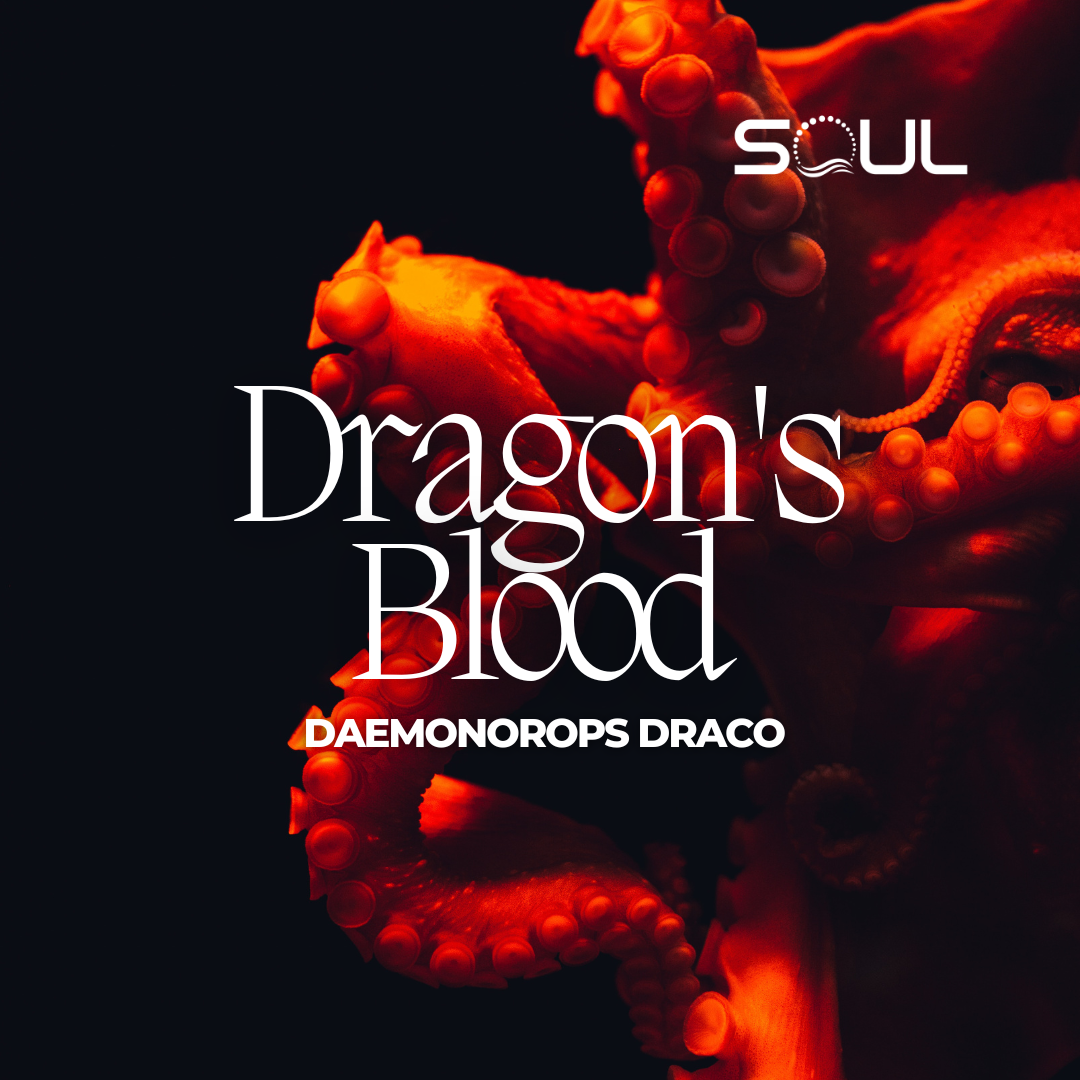
Daemonorops Draco: The Hidden Power of Dragon’s Blood Unleashed
In the grand arena of traditional medicine and natural remedies, there are few botanicals as mesmerizing, as mysterious, and as powerful as Daemonorops draco, the legendary "dragon's blood." Its name conjures images of ancient apothecaries and mystical healers, harnessing this red resin to cure, heal, and rejuvenate. But what do we truly know about this botanical wonder? The time has come to dig beneath the surface, to explore both its ancient roots and the burgeoning scientific evidence that may propel dragon's blood into modern wellness.
Let’s embark on this journey with a nod to what our ancestors understood and an eye toward the mechanistic possibilities yet to be unlocked.
Wound Healing and Skin Regeneration: The Forgotten Miracle
Imagine you're a traveler in a time long past, walking through the jungle, beset by cuts, burns, and bruises. A healer hands you a resin—Daemonorops draco—and suddenly, the pain subsides, the wounds start to close, and infection seems to halt in its tracks. This isn't some mythical tale; for centuries, traditional healers relied on the extraordinary wound-healing properties of this resin.
The science here points to potent antimicrobial and anti-inflammatory compounds. These compounds, which have yet to be fully isolated and named, work like a precision strike force against bacteria and inflammation. Mechanistically, we can hypothesize that these compounds may modulate cellular signaling pathways, particularly those involved in inflammation and immune response. In modern terms, dragon’s blood likely inhibits cytokine production—the very molecules that whip our bodies into a state of inflamed panic. Less inflammation means faster regeneration, leading to healthier skin and quicker recovery times. This isn’t just a salve—it’s skin reborn.
Antioxidant Superpowers: A Red Resin Revolution
In the wellness world, antioxidants are the superheroes, neutralizing free radicals—the biochemical culprits behind cellular aging, tissue damage, and the slow march toward decay. Daemonorops draco might be standing quietly on the sidelines, but its antioxidant capacity has the potential to place it squarely in the limelight.
Now, we venture into the realm of mechanistic conjecture. While the exact compounds in dragon’s blood are still being studied, what if they could outperform the antioxidants we know today? Picture this: dragon’s blood resin as a potent scavenger of free radicals, working tirelessly to shield cellular DNA from damage. The resin could be interacting with oxidative stress pathways, enhancing cellular defense mechanisms. This process—call it “biological fortification”—could be key to improving cellular resilience, promoting longevity, and even delaying the visible signs of aging.
The Inflammation Tamer: A Natural Pathway Modulator
Chronic inflammation is a silent aggressor, one that modern science increasingly links to a host of diseases—from arthritis to heart disease. Daemonorops draco has long been revered for its anti-inflammatory prowess. Could it be that dragon’s blood operates on a level deeper than we once thought, not merely masking inflammation but influencing the very molecular machinery that drives it?
The idea of "inflammation modulation" here is key. Emerging studies suggest that Daemonorops draco may interfere with pro-inflammatory pathways, particularly those governed by molecules like interleukins and prostaglandins. Imagine the resin subtly reprogramming the inflammatory response—lowering the body’s default setting, reducing the number of inflammatory mediators released. If proven, this would position dragon’s blood as a therapeutic option for diseases rooted in chronic inflammation. This is no ordinary folk remedy—it’s a systematic reset for a healthier, more balanced life.
Digestive Wellness: The Resin’s Astringent Secret
In traditional medicine, dragon’s blood was administered to calm the stomach and halt diarrhea. Its astringent properties are well-documented, but why do they work?
Mechanistically, we can theorize that dragon’s blood’s tannins—the compounds responsible for its astringency—bind to proteins in the gut, tightening tissues, reducing fluid secretion, and ultimately restoring digestive balance. In essence, the resin could work like a biological "plug" for gastrointestinal disturbances. But here lies the challenge: while this effect seems plausible based on ancient wisdom, modern science has yet to map the precise digestive pathways dragon’s blood interacts with. Still, the potential is tantalizing.
Antimicrobial Marvel: Unlocking Nature’s Defense Mechanism
Recent studies suggest that Daemonorops draco may harbor a wide spectrum of antimicrobial activity, from combating bacteria to fighting off fungi. For a world struggling with antibiotic resistance, could this be a natural solution hidden in plain sight?
Here, we hypothesize that dragon’s blood may function as a microbial disruptor, possibly targeting bacterial cell membranes or interfering with microbial DNA replication. These are critical weak points in bacterial life cycles, and any compound that can exploit them becomes a valuable tool in our antimicrobial arsenal. Dragon’s blood may be nature’s countermeasure to resistant pathogens—a botanical force with the potential to rewrite the future of natural antibiotics.
Oral Hygiene: A Smile Worthy of the Dragon
In some cultures, dragon's blood has long been used in oral hygiene routines. From chewing the resin to crafting primitive mouthwashes, the antimicrobial and anti-inflammatory attributes offer clear benefits. Mechanistically, we can speculate that dragon’s blood may disrupt bacterial colonies in the mouth, reducing the plaque buildup that leads to gum disease and tooth decay. It's as if this resin were nature’s mouthwash—capable of both cleaning and soothing.
But, of course, science demands proof. For now, the idea of dragon’s blood in dental care remains an intriguing possibility awaiting clinical validation.
A Legacy of Wisdom, Awaiting Modern Validation
Daemonorops draco, this enigmatic dragon’s blood, sits at the intersection of history and science. Its traditional applications—wound healing, inflammation reduction, antimicrobial defense, digestive health—are slowly being validated by modern research. But the journey is far from over.
These statements have not been evaluated by the Food and Drug Administration. This product is not intended to diagnose, treat, cure or prevent any disease. This article is for informational purposes only and is not a substitute for professional medical advice. Always consult your healthcare provider regarding any health concerns or before starting new supplements.
